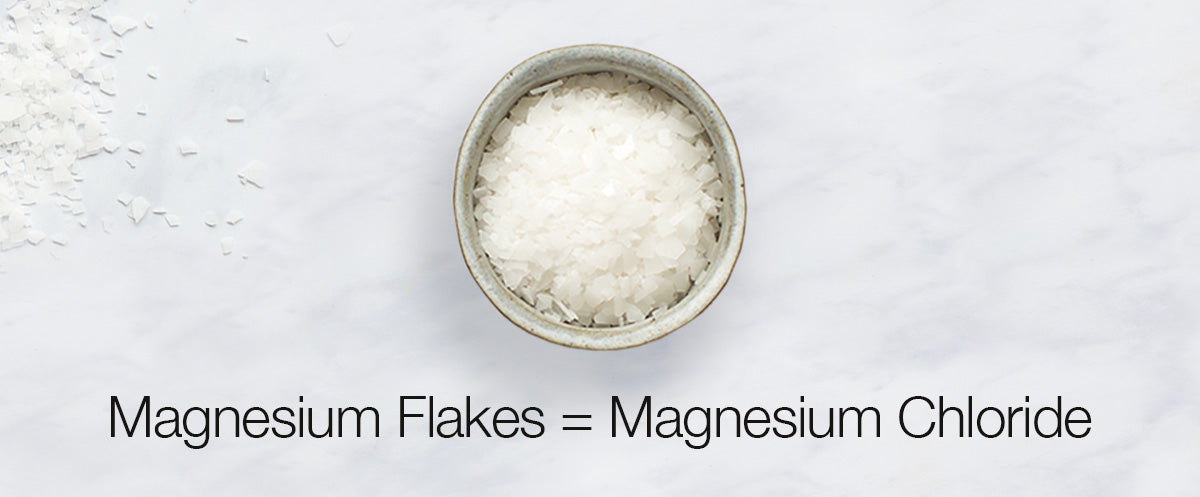Almost half of us (42%) are taking a relaxing bath at least once a week and when it comes to taking a full body soak, many of us enjoy using bath salts – but do we know exactly what we’re soaking in, and whether it contains the best ingredients to support our health and wellbeing?
The most popular bathing salts are Epsom Salts and Magnesium Flakes, both of which contain magnesium compounds – yet in different forms.
Magnesium benefits are world-renowned such as aiding sleep quality and relieving muscle tension, so here, we have created a guide to help you identify the key differences between Magnesium Flakes and Epsom Salts.
Forms of Magnesium


Epsom salts aren’t actually salt, but magnesium sulphate. They are sourced either from naturally occurring springs, or are created from synthetic materials.
Magnesium Flakes are a magnesium chloride solution, which has been heated up then cooled down to create a hard sheet of highly-concentrated magnesium chloride that is then broken into small pieces to create the ‘flakes’.
Purity
Epsom Salts, is one of the most common forms of magnesium, with the vast majority being synthetically manufactured for mass market. Whilst Epsom Salts can also be sourced naturally from open water such as the Great Lakes, Dead Sea or naturally occurring springs, these sources can be exposed to man-made pollutants and heavy metals which can contaminate the resulting crystals. These pollutants include aluminum and mercury, which can have a negative effect on health if allowed to build-up over time.
Magnesium chloride is a naturally occurring compound which can be mined from ancient sea beds or in open-water sources like the Dead Sea.
BetterYou Magnesium Flakes only use magnesium chloride that is mined from a rich seam one mile below the Zechstein sea in Northern Holland. This source has been protected and purified for over 250 million years and is the richest and most naturally pure source known.
Bioavailability
While both compounds contain a similar level of elemental magnesium, a key difference between Magnesium Chloride (flakes) and Magnesium Sulphate (salts) is the rate of absorption within the body. Because it is wholly soluble, Magnesium Chloride will efficiently absorb when exposed to the skin.
This high solubility is vital to allow the compounds to break their bonds and absorb effectively into the body. Ultimately, Magnesium Chloride can be more easily absorbed and utilized by the body, when compared to using Epsom Salts.
Magnesium Flakes vs Epsom Salts: The verdict
While the appearance and application may be similar, the ‘unseen’ difference in absorption between Magnesium Chloride and Magnesium Sulphate is what really sets these two compounds apart.
Add a cup of our Magnesium Flakes to your next bath, relax for 20 minutes and discover the benefits of transdermal magnesium supplementation.



